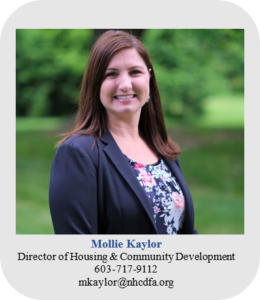Reporting Requirements
The filing system should be easy to use and provide a historic account of activities for examination and review by the State, auditors and local staff. All records must be available to the following entities upon request:
- U.S. Department of Housing and Urban Development,
- The Inspector General,
- The General Accounting Office,
- The Comptroller General of the United States, and
- NH Community Development Finance Authority (CDFA).
These entities must have access to any pertinent books, records, accounts, documents, papers, and other property that is relevant to the grant. Certain records must be available to the public as well. However, grantees must keep files that contain personal information, such as social security numbers, in a secure place. Grantees must keep their own records separate from CDFA’s Grants Management System (GMS) in compliance with Section 11.3.
The submission of timely reports as outlined in Sections 11.1-11.2 is essential for compliance with the grant agreement with CDFA. A CDBG Webinar Video on this topic can be viewed by clicking the link.
NOTE: NH has enacted RSA Chapter 91-A, the Right to Know Law. All CDBG documents are considered governmental records. All grantees should bear this in mind and consult with their legal counsel to ensure appropriate levels of documentation and retention. See the Right-to-Know section in this chapter.
